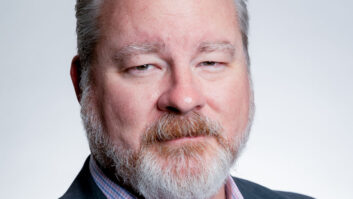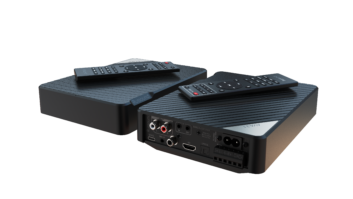Denver — Lower sales and a widening loss plagued retailer Ultimate Electronics during the company’s fiscal second quarter, and despite the company’s ongoing implementation of a turnaround strategy, Ultimate still anticipates weaker sales in the coming months, plus a fiscal year-end finish with a net loss.
Sales for the three months, ended July 31, edged downward 1 percent, sliding to $152.9 million, compared with a year-ago $154.2 million. Comp-store sales in the second quarter were off 9 percent.
Ultimate reported $8.8 million operating, and $16.2 million net losses for the second three months, both wider than the $2.9 million operating, and $1.8 million net losses recorded in the year-ago period.
Gross profit margin in the three months was 32.7 percent, compared with 33.9 percent in the same quarter in 2003, as this profit barometer continued to be impacted by SKU reduce-tion in certain categories, efforts to reduce the amount of product that becomes discontinued and aggressive promotions.
At the same time, quarterly expenses as percentage of sales increased to 38.5 percent, from 35.8 percent, reflecting the impact of the reduction in comp-store sales, higher costs associated with the operation of the retailer’s information systems and a non-cash charge. Results for the three months also were negatively impacted by the non-cash reversal of an income tax benefit of $6.9 million.
“When we implemented our turnaround strategy, we anticipated that we could generate positive sales and achieve break-even results by the end of the year,” said Dave Workman, president/CEO. “Based on our sales performance for the first half of the fiscal year and the first three weeks of August, we now expect weaker sales and to finish the year with a net loss.”
Workman, who believes Ultimate will continue to yield improved financial results from its turnaround strategy and the initiatives it has taken to implement that strategy, now expects “our strategy and related initiatives will take longer than originally anticipated to return our company to profitability.”
Workman, however, claims to see some light at the end of a dark tunnel. “While our operating results for the second quarter and the first half … were below our expectations, we have made progress to date with the implementation of our turnaround strategy, including our initiatives to capitalize on new sales opportunities in the home builder business, to reduce stock outages in an effort to optimize our inventory, to improve our information systems and to reduce operating costs.” The latter included across the board headcount reductions earlier this year, and the planned closing of two stores next year as they come off lease.
He continued, “We have generated improvements from the first quarter to the second quarter of this year in comparable-store sales, gross profit margin and operating results. This progress underlies our belief that we should continue to see improvement in the second half of the fiscal year.”
Workman reports that Ultimate’s focus continues to be on enhancing customer experience, improving execution at every level of its business, reducing costs, and capitalizing on new sales opportunities including DVD software, cable TV, expanded accessories, Apple iPods and the home builders’ channel. He also believes the recent amendment of the company’s revolving credit line and additional financing will provide it with the necessary financial flexibility needed to pursue its turnaround strategy.
In the second quarter, Ultimate continued to emphasize its high-end digital TV business, with its largest category — television/DBS — increasing to 44 percent of total sales, up from 42 percent in the same three months last year. Both the mobile and home office category shares declined in the second three months, to 9 percent and 1 percent, from 11 percent and 3 percent, respectively, year-over-year. The audio and video/DVD categories held steady in the second quarter, at 13 percent and 9 percent, respectively.
For the six months, the television/DBS category increased its overall share of total sales to 46 percent, from 42 percent in the first half of 2003, and could account for half of all sales during the second half of the year, Workman said. Video/DVD dropped from 14 percent to 12 percent during the first six months, mobile from 10 percent to 9 percent and home office from 3 percent to 1 percent during the period. Audio held steady at 18 percent.
Sales in the six months decreased 2 percent, down to $305.3 million, from $309.9 million. Comp-store sales were off 10 percent.
Ultimate reported a net loss of $24.6 million for the six months, compared with a net loss of $3.2 million year-on-year. Operating loss for the first half reached $21.7 million, compared with an operating loss of $5.1 million in the same period a year earlier.
Gross profit margin in the six months was 32.1 percent, down from a year-ago 33.3 percent, while expenses climbed to 39.2 percent, compared with 34.9 percent in the same six months the previous year. Results for the six months also were negatively impacted by a non-cash reversal of an income tax benefit of $1.8 million.
In a conference call, Workman noted that weak sales caused by poor economic conditions and high gas prices have plagued all of retailing this summer, and that that environment was also partly to blame for Ultimate’s disappointing Olympics-related TV sales efforts.
Despite the company’s current woes, Workman expressed “tremendous confidence” in its long-term success and profitability, thanks to the growth of DTV and Ultimate’s core differentiated service and installation strategy. He described DTV as one of the chain’s strengths, making it well-positioned to benefit from the category’s high demand and price points. He also predicted that the service business will become the company’s fastest growing segment, and that its 36-year history in installation will help it out-execute national competitors like Best Buy’s Geek Squad.
Workman noted that while independent and regional CE dealers were built upon a product differentiation strategy, the blurring of restricted distribution policies has compelled these retailers, including Ultimate, to look to service as their point of differentiation from national chains.













